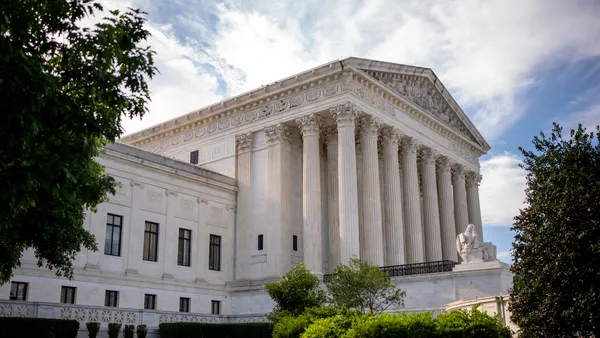Dive Brief:
- Under a July 24 consent decree, California-based Select Staffing will pay $500,000 to settle a U.S. Equal Employment Opportunity Commission lawsuit alleging it allowed female agricultural workers to be sexually harassed while working at a production facility for client National Raisin (EEOC v. Sunshine Raisin Corp. d/b/a National Raisin Co.; Real Time Staffing Services, LLC d/b/a Select Staffing).
- After receiving complaints about the harassment — which included frequent groping, sexually explicit comments and requests for sexual favors — Select Staffing allegedly failed to take appropriate corrective measures and instead assumed National Raisin would respond, the EEOC stated in a July 25 media release.
- In March, National Raisin agreed to pay $2 million to settle EEOC claims that it allegedly allowed workers, many of whom were provided by Select Staffing, to be sexually harassed. The total $2.5 million payment will be distributed to class members from a settlement fund, the agency said.
Dive Insight:
The settlements are a stark reminder that staffing agencies and their clients may not shuck off onto each other their responsibility to comply with federal law, including Title VII of the Civil Rights Act of 1964, the statute at issue here.
Both staffing firms and the client must follow the law, the EEOC has emphasized.
For example, “employers cannot delegate their non-discrimination responsibilities to staffing agencies, nor can they hide behind a staffing agency to avoid their obligations under federal law,” EEOC Regional Attorney Anna Park stressed in March.
Likewise, “staffing agencies are the direct employers of temporary workers,” Park stated in the July release.
However, the EEOC is “seeing repeated issues with staffing agencies who ignore harassment of temporary workers on assignment,” Park said. As with all employers, Title VII requires staffing firms “to take action to protect their employees if they learn of third-party harassment at client worksites,” she underscored.
The EEOC considers temporary workers a group “more vulnerable to workplace injustices and ... a priority in the EEOC’s 2024-2028 Strategic Enforcement Plan,” Armando Hernandez, local director of the EEOC’s Fresno office, added.
Staffing firm practices have been on the EEOC’s radar for some time. In 2022, the agency sued BaronHR, an Anaheim, California-based company, for allegedly screening out non-Hispanic candidates for a laundry facility that maintained a predominately Hispanic/Latino(a) workforce.
The EEOC also alleged that BaronHR acquiesced to one client’s request for only nondisabled, physically fit workers with no current or prior injuries. In April, BaronHR agreed to pay $2.2 million to settle the lawsuit.
Similarly, in 2022, a Buffalo staffing firm agreed to pay $550,000 to settle EEOC allegations that, at the request of clients, it rejected Black applicants or placed them in lower-paying jobs and placed women in different types of jobs than men, among other allegations.
Employment decisions based on prejudice or stereotypes about an employee’s protected status under Title VII are unlawful, including acquiescing to a client’s discriminatory request or preference, an EEOC attorney in New York told HR Dive after the Buffalo settlement was announced.
In the lawsuit against Select Staffing and National Raisin, the EEOC alleged that despite Select Staffing’s ongoing supervision of female workers it placed at National Raisin’s production sites, the widespread harassment by managers and employees went unaddressed, the EEOC said.
The workers were also allegedly subjected to retaliatory terminations after they complained, the agency said.
Under the consent decree, which noted that Select Staffing did not admit to liability, the staffing firm must modify its employment practices, especially for temporary workers; train them on their rights under Title VII; and train managers and HR representatives on how to prevent and correct harassment.
Select Staffing must also track complaints and communicate with clients when harassment complaints arise to ensure appropriate corrective action is taken, the EEOC said.













